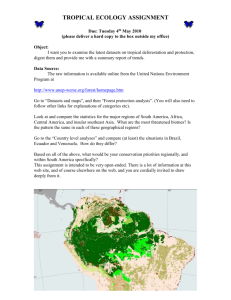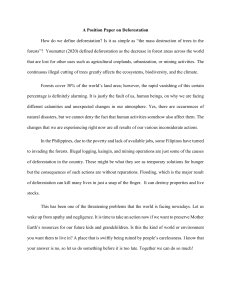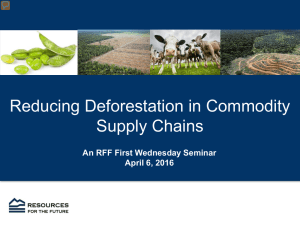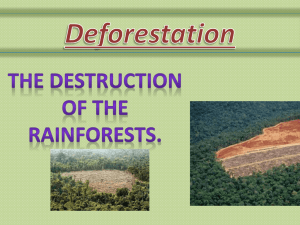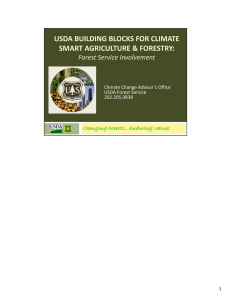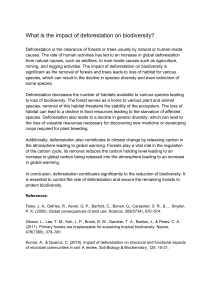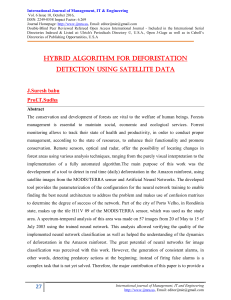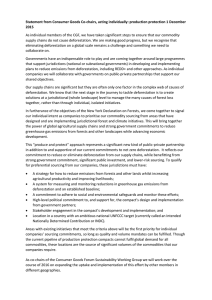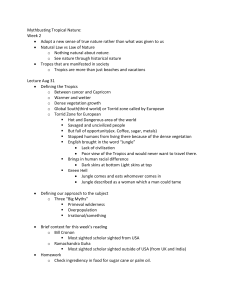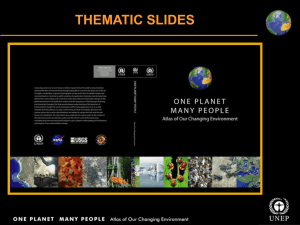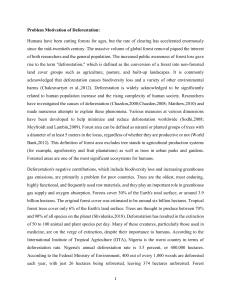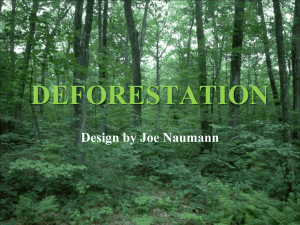exploitation impacts of
advertisement
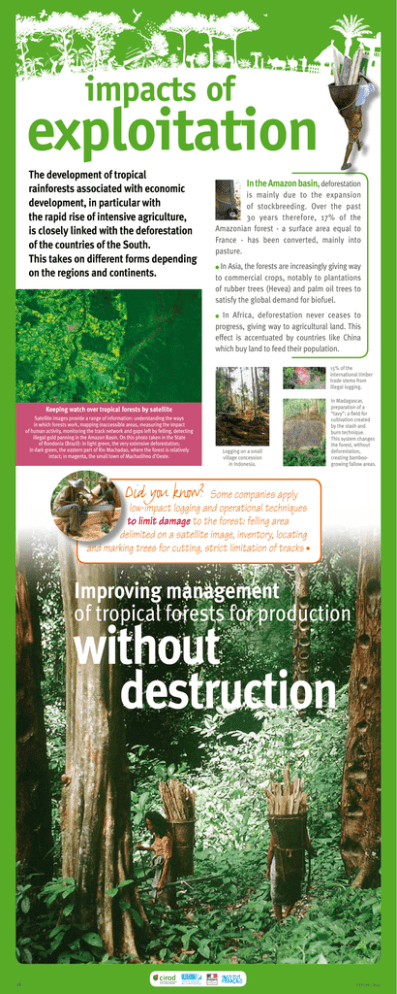
impacts of exploitation The development of tropical rainforests associated with economic development, in particular with the rapid rise of intensive agriculture, is closely linked with the deforestation of the countries of the South. This takes on different forms depending on the regions and continents. In the Amazon basin, deforestation is mainly due to the expansion of stockbreeding. Over the past 30 years therefore, 17% of the Amazonian forest - a surface area equal to France - has been converted, mainly into pasture. In Asia, the forests are increasingly giving way to commercial crops, notably to plantations of rubber trees (Hevea) and palm oil trees to satisfy the global demand for biofuel. In Africa, deforestation never ceases to progress, giving way to agricultural land. This effect is accentuated by countries like China which buy land to feed their population. 15% of the international timber trade stems from illegal logging. Keeping watch over tropical forests by satellite Satellite images provide a range of information: understanding the ways in which forests work, mapping inaccessible areas, measuring the impact of human activity, monitoring the track network and gaps left by felling, detecting illegal gold panning in the Amazon Basin. On this photo taken in the State of Rondonia (Brazil): in light green, the very extensive deforestation; in dark green, the eastern part of Rio Machadao, where the forest is relatively intact; in magenta, the small town of Machadihno d’Oeste. Logging on a small village concession in Indonesia. In Madagascar, preparation of a “tavy”: a field for cultivation created by the slash and burn technique. This system changes the forest, without deforestation, creating bamboogrowing fallow areas. Did you know? Some companies apply low-impact logging and operational techniques to limit damage to the forest: felling area delimited on a satellite image, inventory, locating and marking trees for cutting, strict limitation of tracks • Improving management of tropical forests for production without destruction 16 MINISTÈRE DES AFFAIRES ÉTRANGÈRES ET EUROPÉENNES FTH/en - 2011
